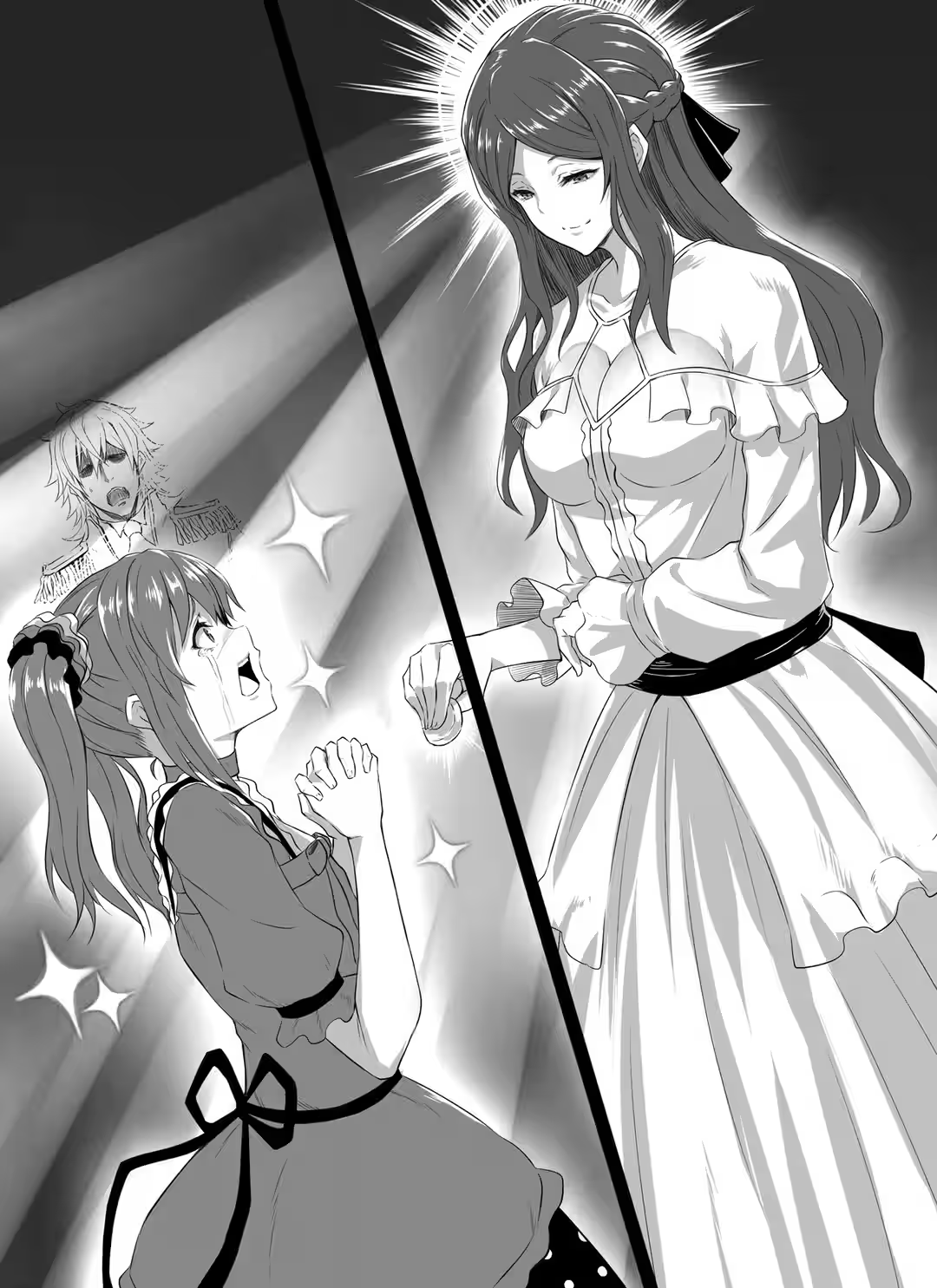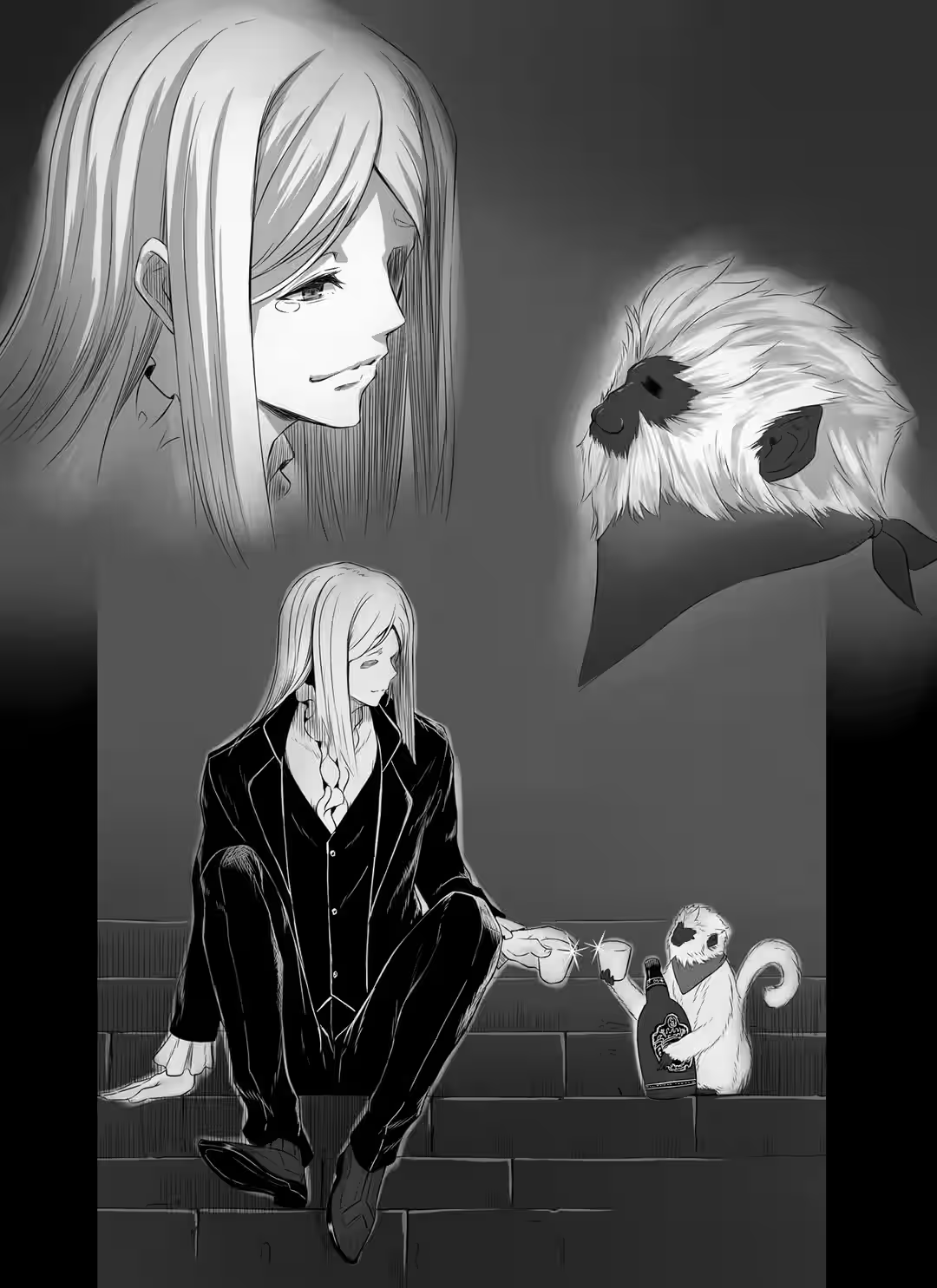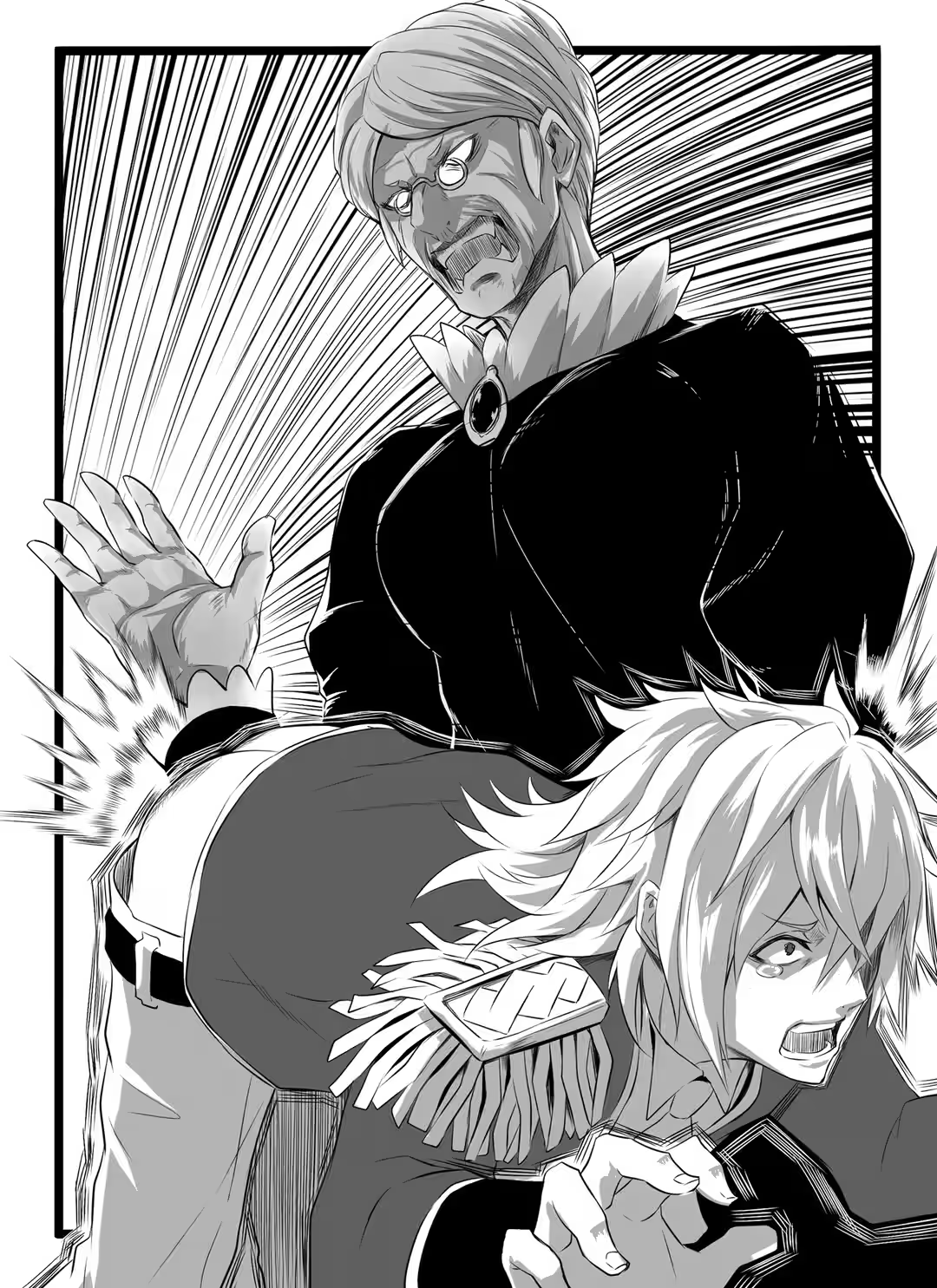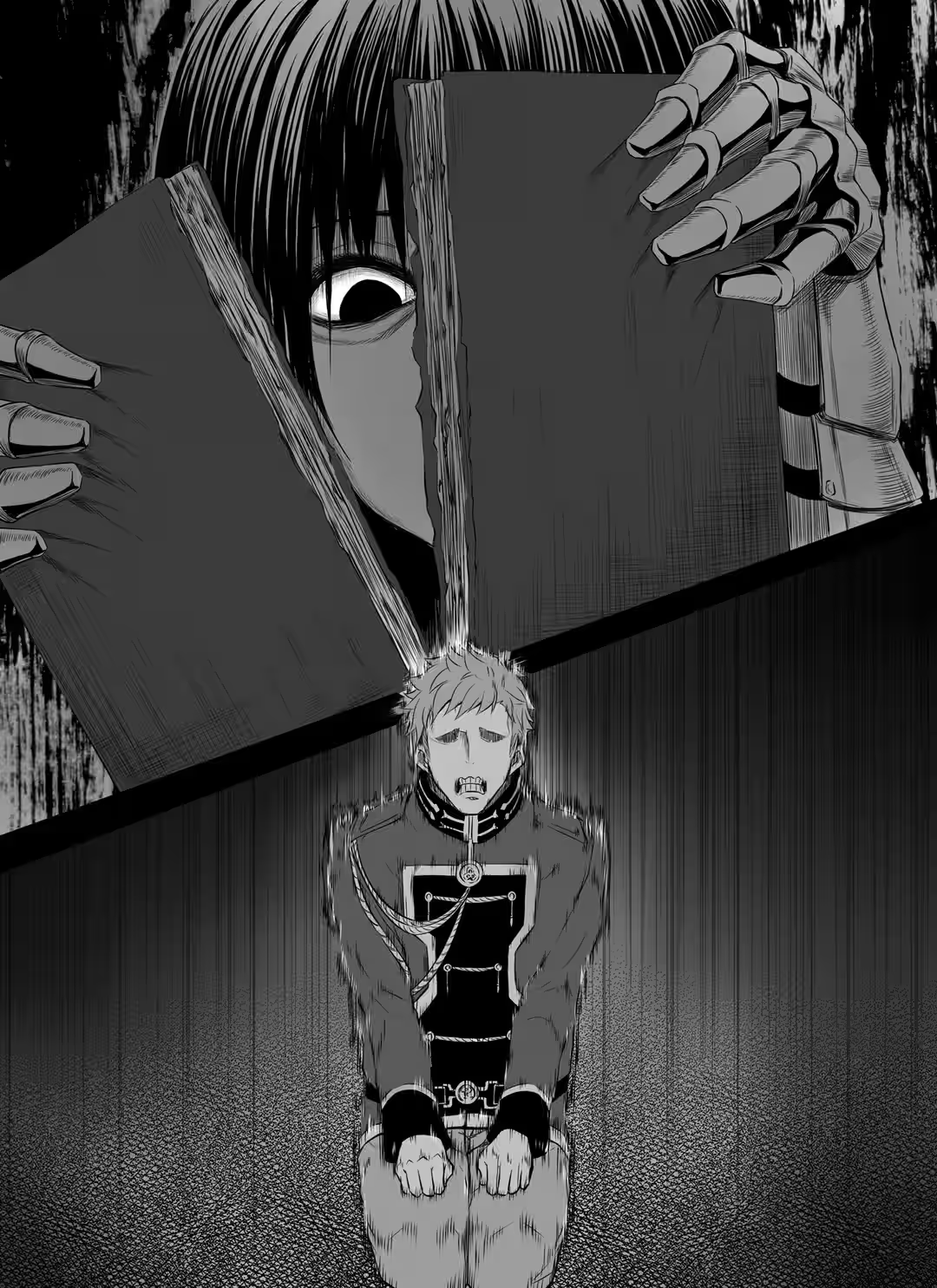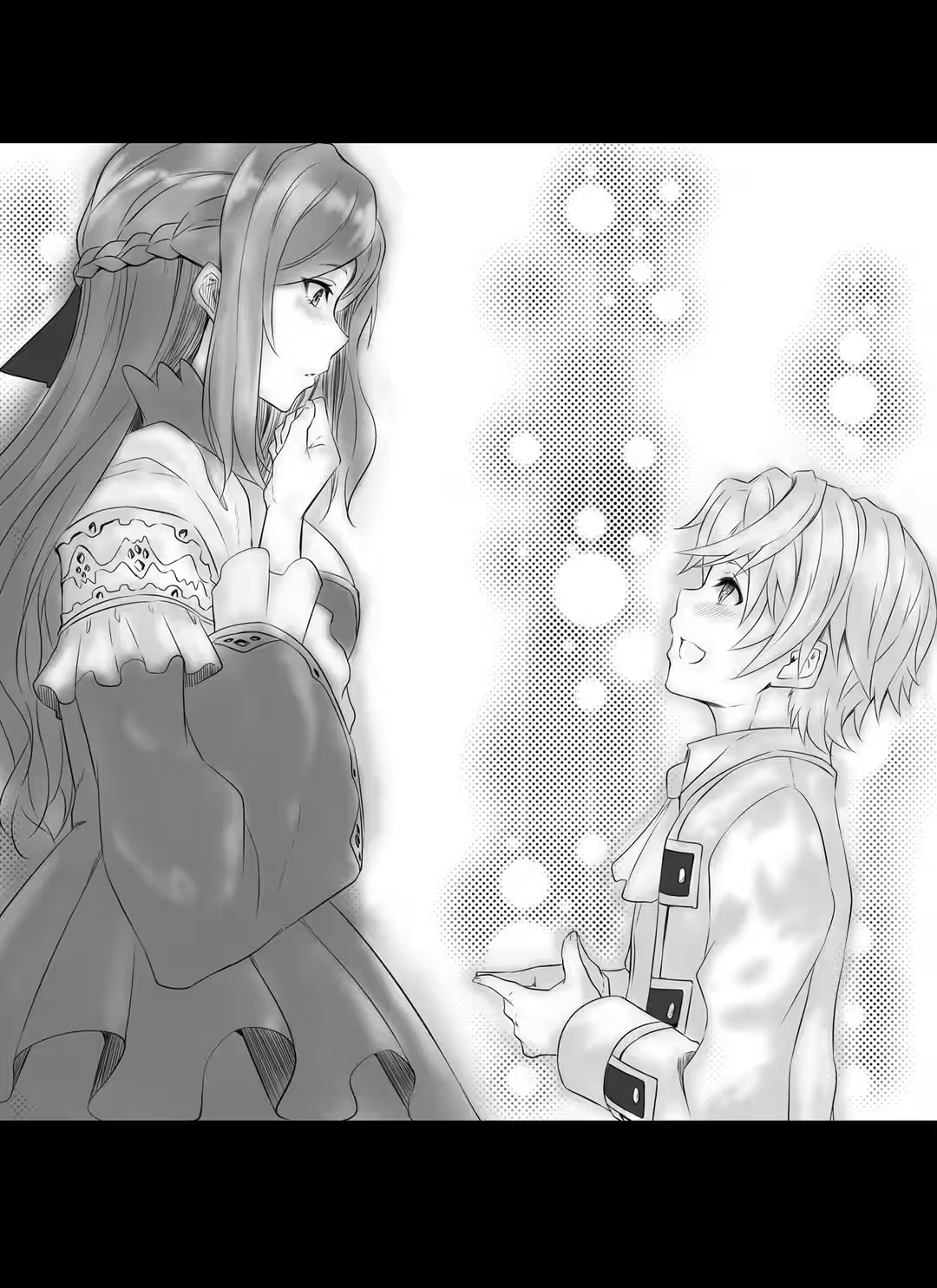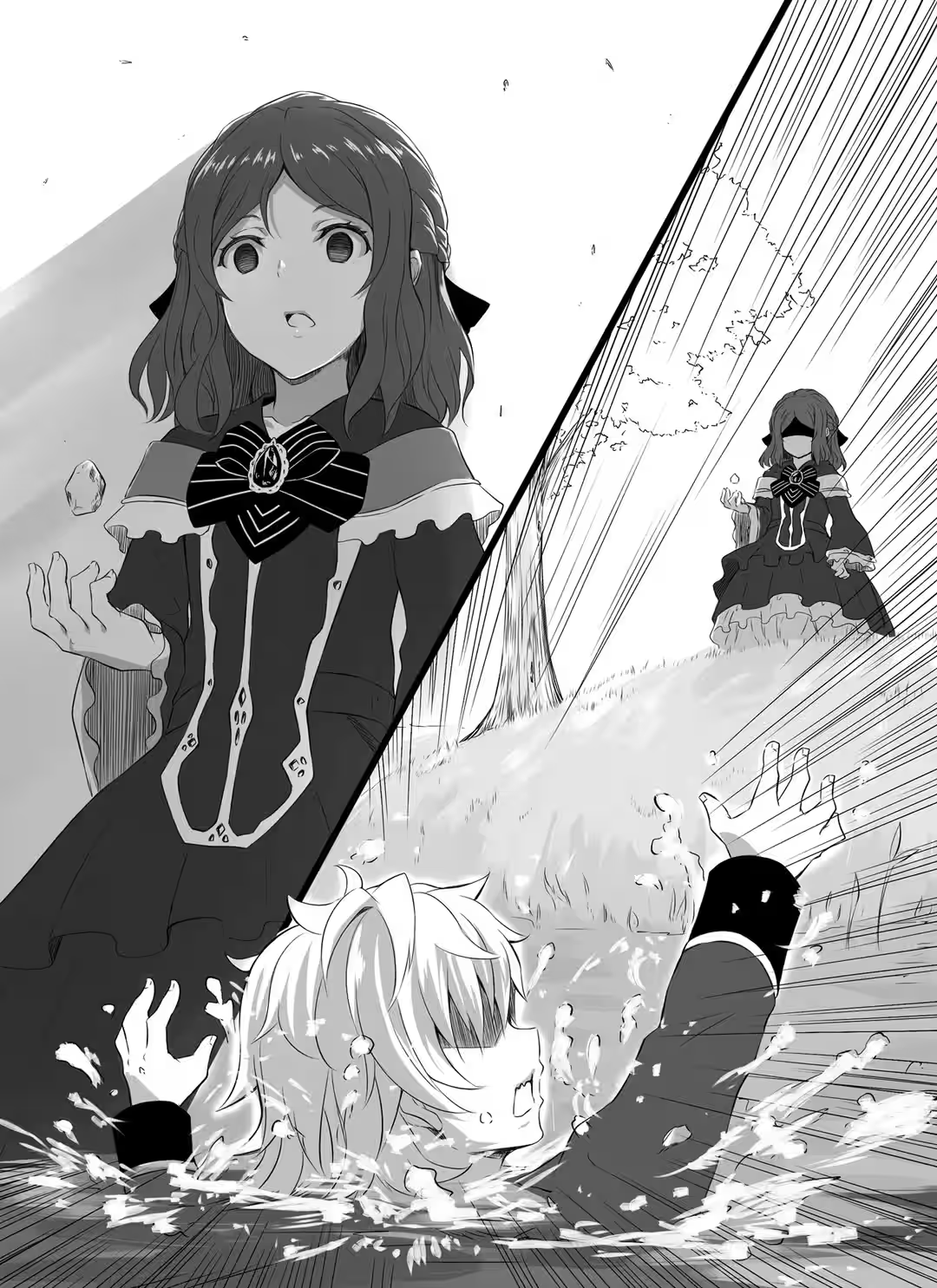
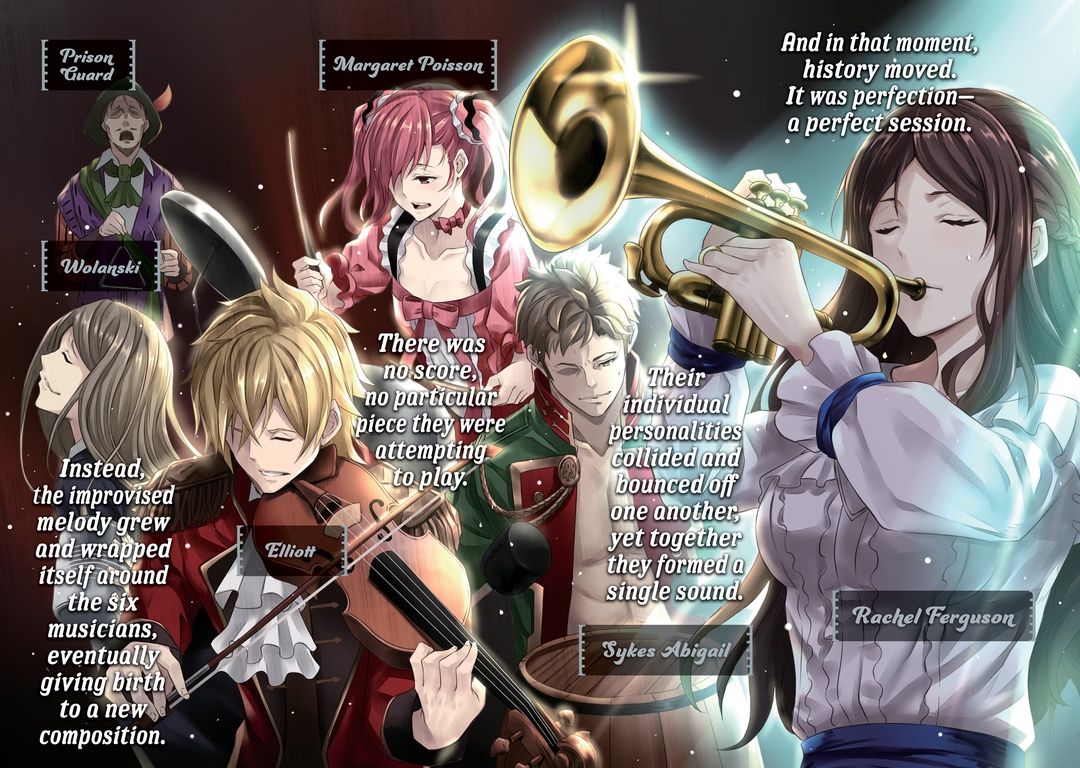
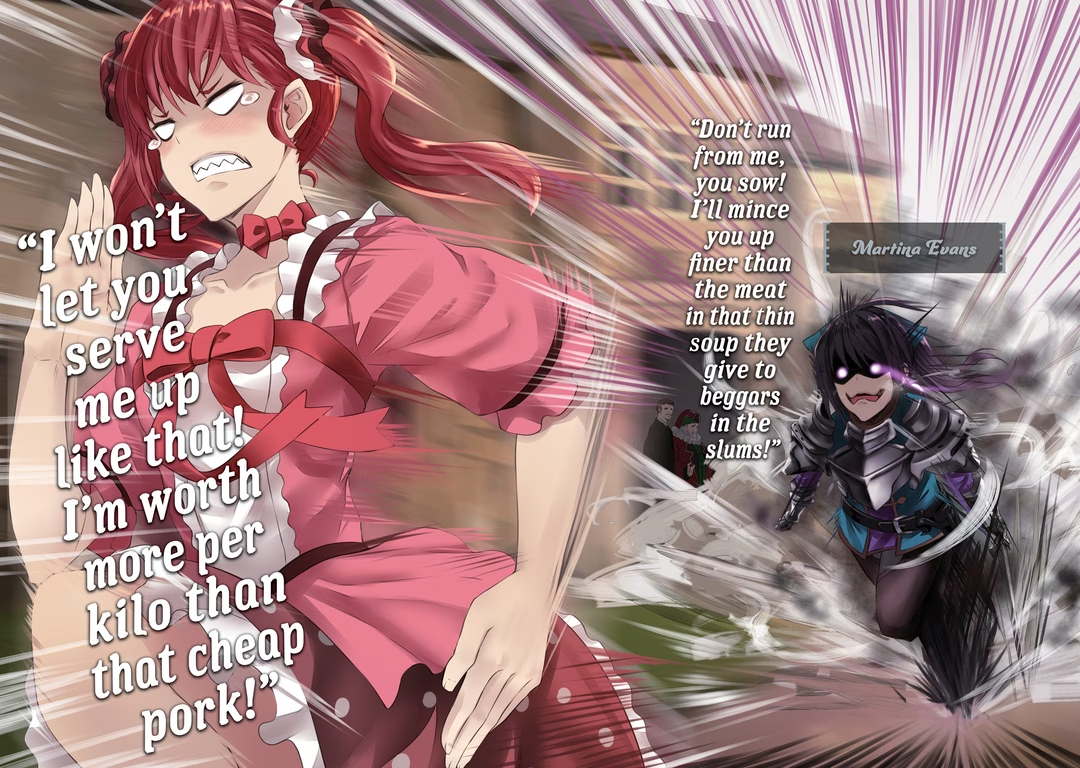
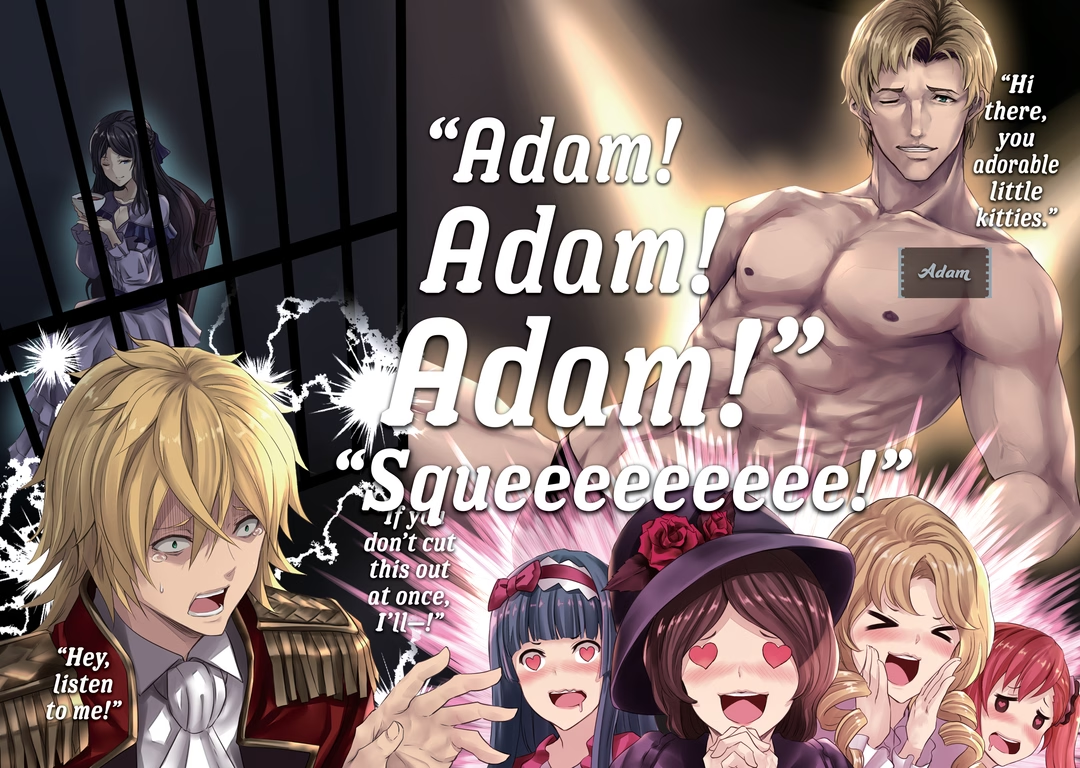
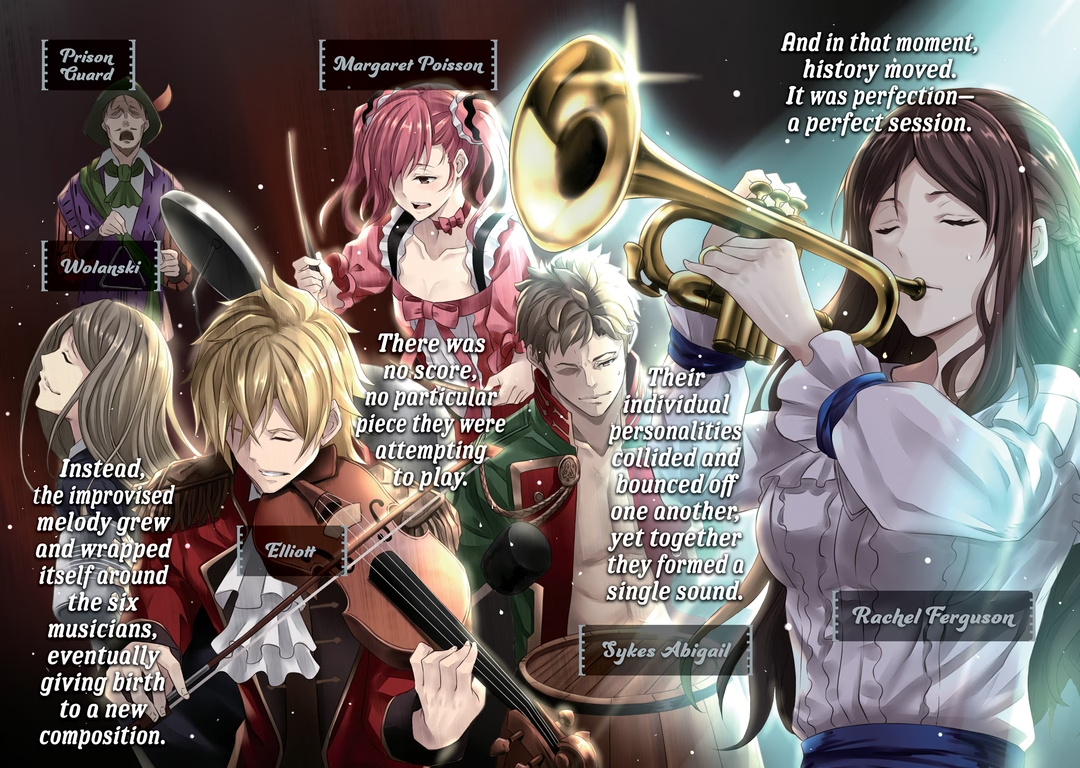
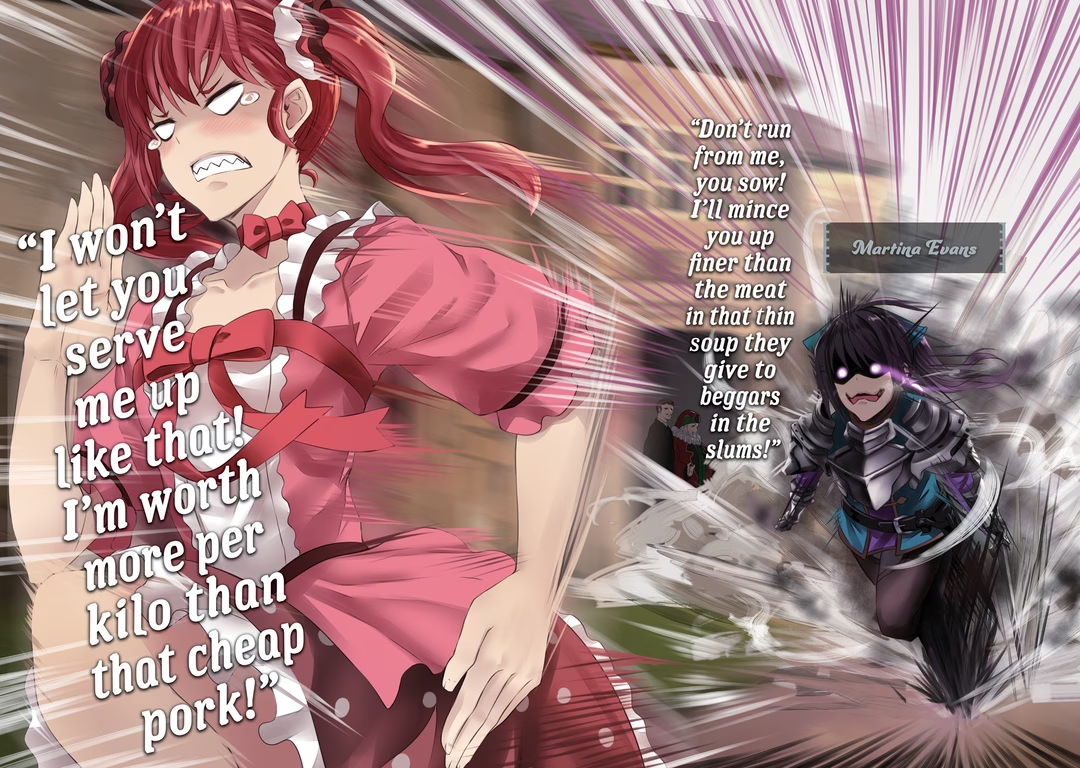
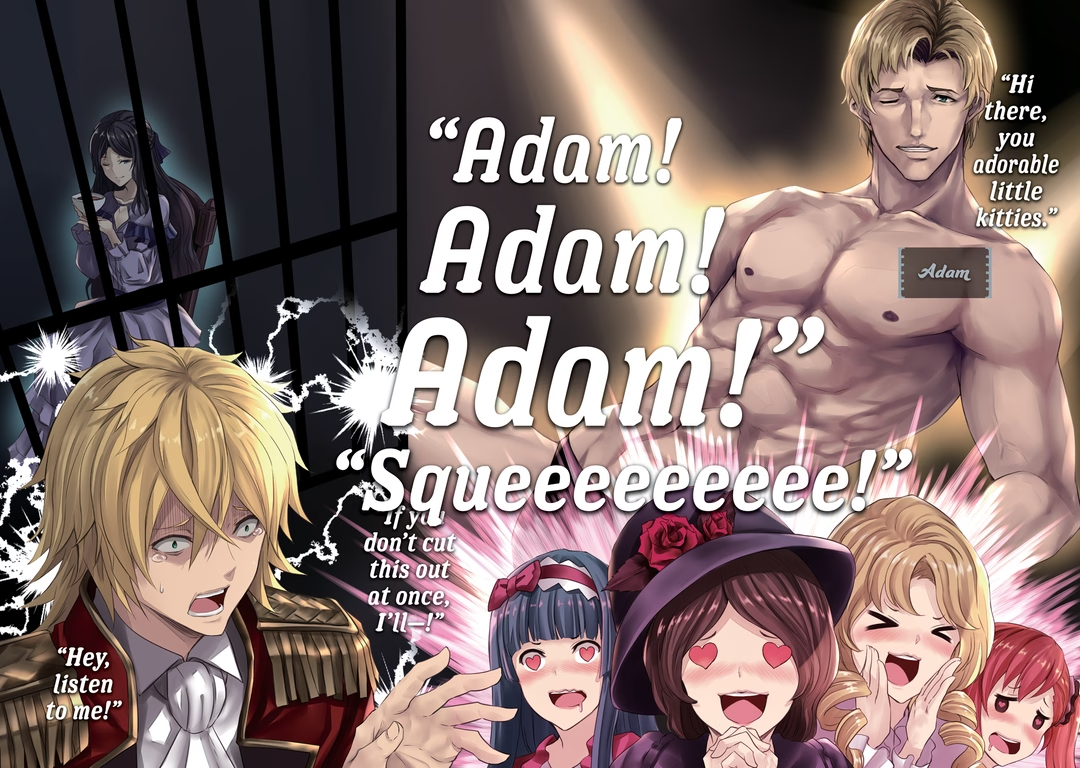
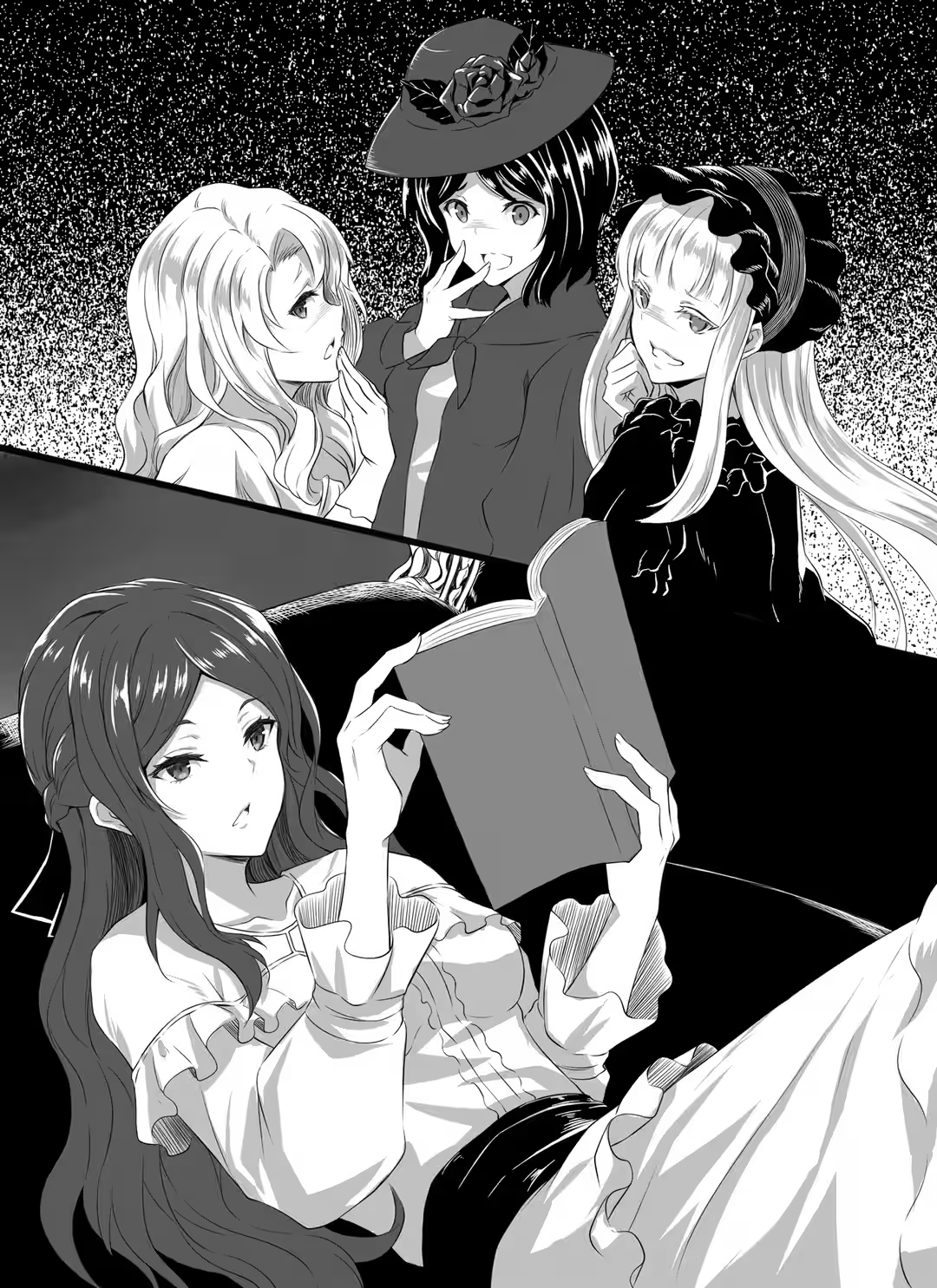
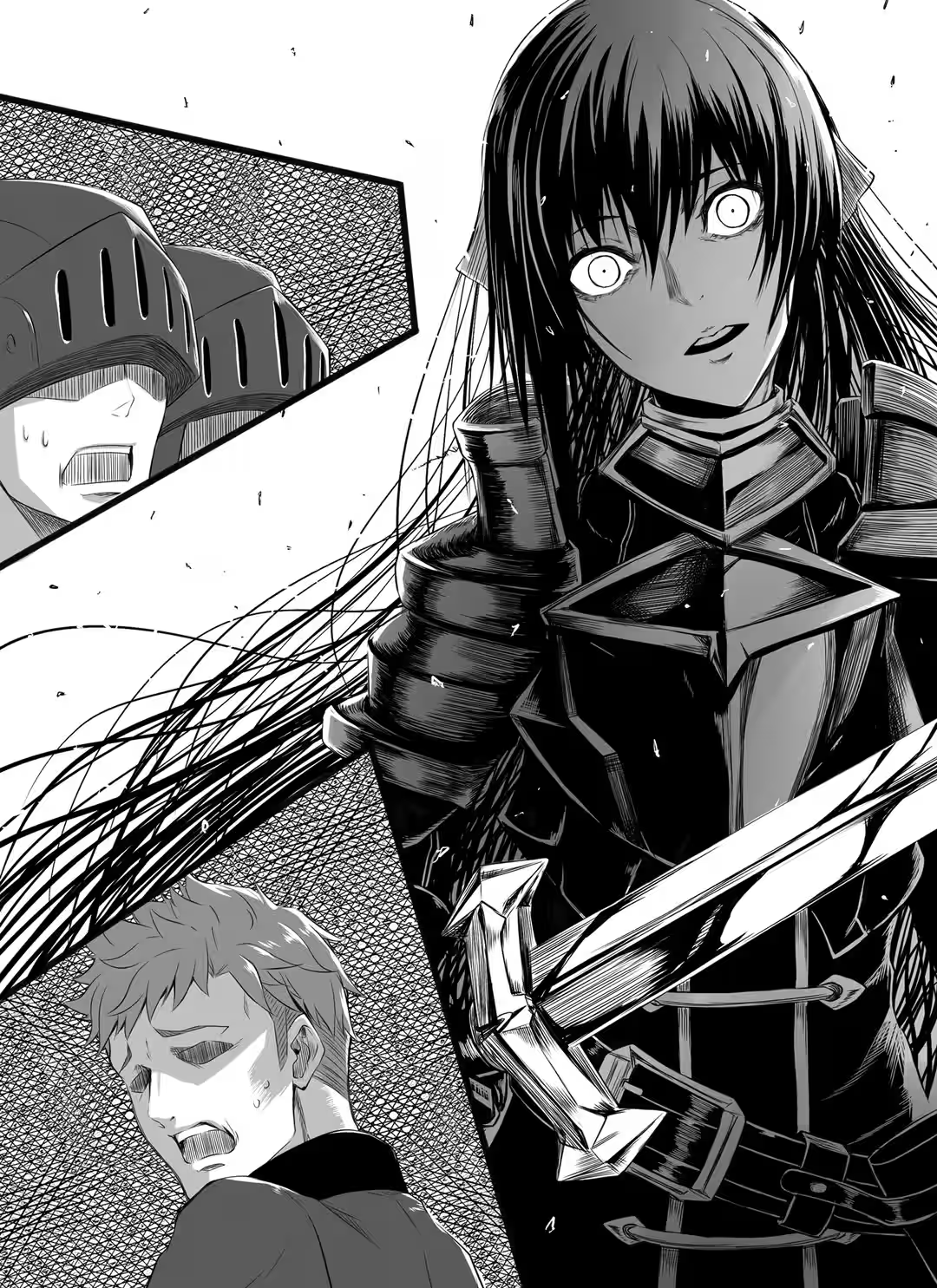
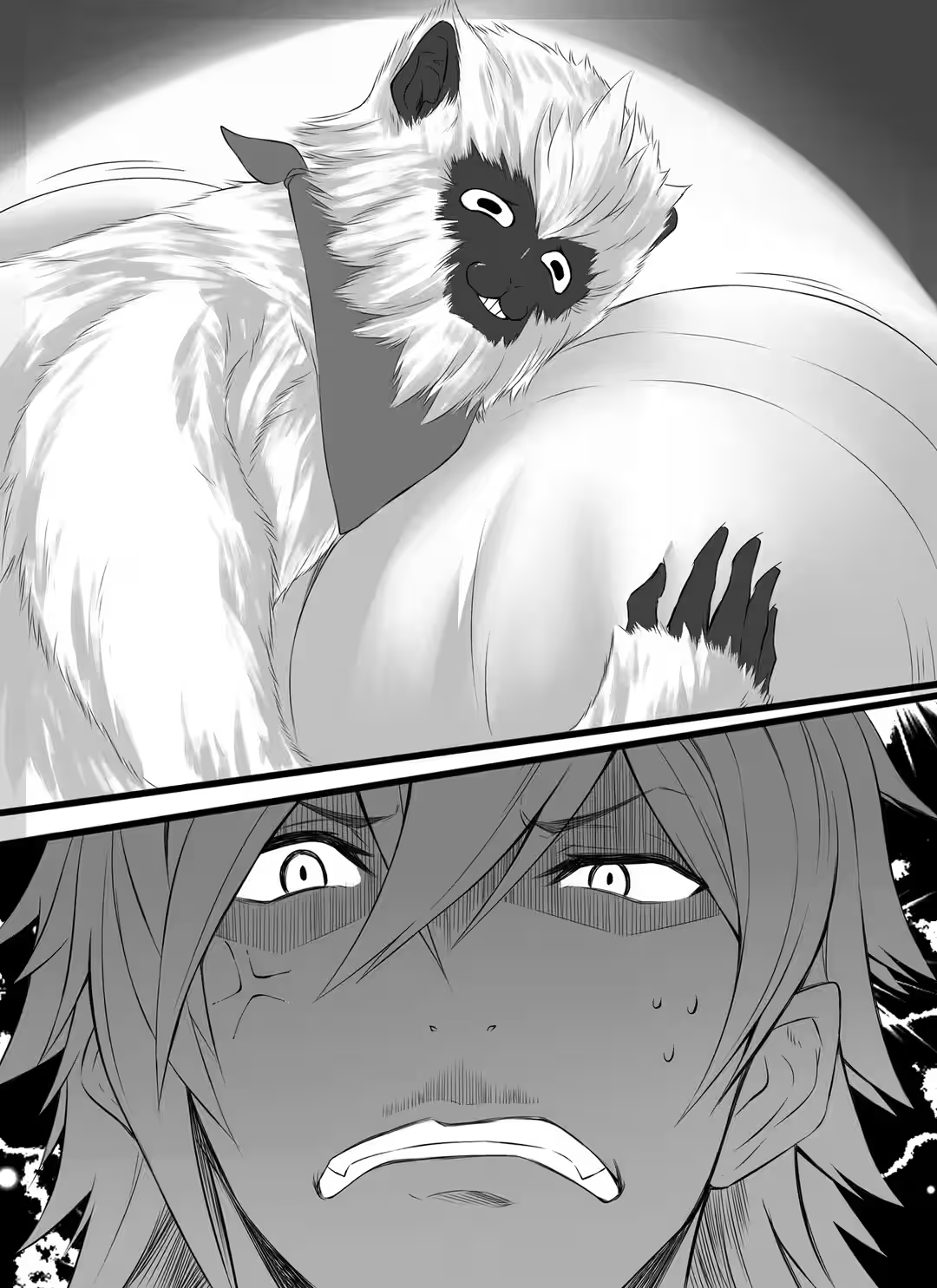
Afterword
Thank you for buying the second volume of this series as well as the first.
This is the conclusion of Rachel and her friends’ story. I hope you were able to enjoy the chaos all the way to the end.
They say that characters are an extension of the author, but the characters of this work are so full of character that I really don’t want to think that’s true.
Rachel was born into a ducal house, with both money and power, and she’s also a quick thinker, so she does everything flawlessly. In a story like this one, I feel like it was mostly her strengths that came into play, but there’s also a hedonistic, short-sighted side to her. That’s why she sometimes takes advantage of incidents without solving them, and why she enjoys the shut-in life in prison. Despite her ability to predict things, she doesn’t think much about what’s going to come next. She already has everything, so there’s nothing she wants to do. She’s a jack-of-all-trades, but a master of none. That’s frustrating to her servants, and it also worries them, but at the same time, they’re in awe of her.
Elliott, conversely, thinks he can do anything, but he can’t. He has dreams and a sense of pride, but he doesn’t notice that no one views him as highly as he views himself. I don’t want to think I’m like him either, but in the opposite way from Rachel. To tell you the truth, if they could have gotten along, Rachel and Elliott might have been the best kind of couple, able to augment each other’s shortcomings. They didn’t get along, though.
Margaret has gumption, and that’s about it. Her methodology is poorly thought out. She’s not just going nowhere, but she also can’t get over the walls she runs into. She’s found one working formula and is trying her best with it, but she doesn’t realize it won’t solve all her problems.
George, Sykes, Wolanski (whose first name we never did learn), and the other members of Elliott’s group. Haley, and the members of the Black Cats of the Dark Night, chiefly Sofia, Lisa, and Meia. The king, daddy duke, the grand duke, the prime minister, the commander of the knights, and all the people of the palace, including the prison guard, of course.
I ended up with a lot of characters, but all of them, from the protagonist to the nameless side characters, have a few screws loose. There are no perfect people here. There aren’t any in reality either, so it feels unrealistic to have perfect people even in a fictional world. And the characters can only act in ways the author can think of, so all these slightly off-kilter characters may really be an extension of myself.
I wrote this in the afterword of the previous volume, but sometimes characters take on a life of their own and write themselves.
When I’m writing a novel, I’m recording scenes that I imagine as animations inside my head. I convert the images into words, and then tie the scenes together. That’s why, when I can’t put the images I saw into words, maybe due to a lack of vocabulary or means to express them, I can end up getting stuck. Either I can’t make the conversion, so I can’t move forward, or I can’t tie the scenes together, so it doesn’t form a story. And sometimes I can’t imagine anything at all. That’s what causes writer’s block.
However, with this novel, the ideas came one after another, and I was having a hard enough time just writing them all down. I sometimes had multiple conflicting scenes and had to make hard choices about which to keep. I think the high-strung state of my late-night brain may have had some effect on that, but that’s just how well I was able to get into the characters. They created their own scenes.
When writing the text for a work like this, my pen flows smoothly. When connecting scenes, or if I’m not in the mood, it’s easy to end up with mechanical, forced, boring writing. But in cases like this, where I’m itching to write the next scene, amusing phrasings just come naturally as I clack away at the keyboard. When there are little jokes in the prose, many of them were born from that state of mind.
When you look at it that way, it feels like Prison Life is Easy for a Villainess exceeded my expectations in a miraculous way to end up in its current form. I almost feel as if the characters wrote half of it by themselves. In that sense, the reason it was so well received and the reason it was able to become a published book is thanks to the characters.
This is the end for Rachel and the rest, but they’ll go on living in the world of this work. If there are later stories I can’t put into text, I hope that Rachel, Elliott, and the rest of the crazy but lovable cast can find a happy future.
And so, with the hope that I’ll be blessed with such a wonderful cast again with a new work, I set my pen down and end this story.
Thank you for joining Rachel and the rest of the gang over the course of these two volumes.
By the way, during serialization, Elliott was called “too stupid,” but looking over other works in the broken engagement genre, this author is of the opinion that Elliott’s not that big of an idiot. It’s just that maybe those other stories don’t have a villainess who responds to a slap on the cheek by swinging a nail bat at you...
With a hint of loneliness,
Hibiki Yamazaki
